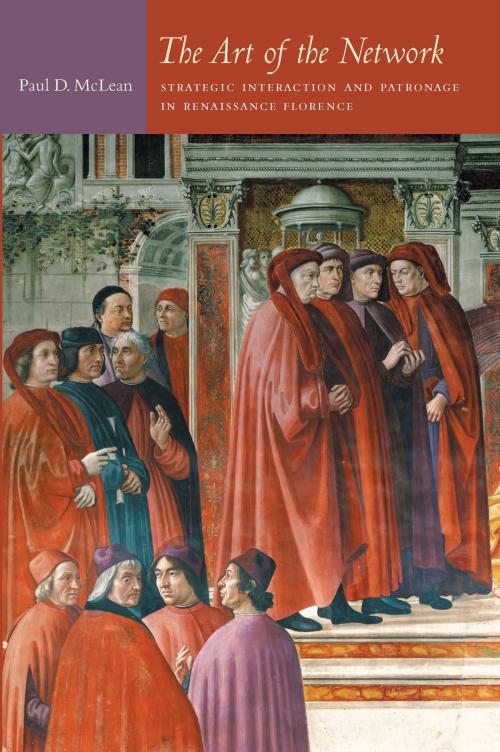The Art of the Network
Strategic Interaction and Patronage in Renaissance Florence
Nonfiction, Social & Cultural Studies, Social Science, Sociology| Author: | Paul D. McLean, Julia Adams, George Steinmetz | ISBN: | 9780822390367 |
| Publisher: | Duke University Press | Publication: | December 7, 2007 |
| Imprint: | Duke University Press Books | Language: | English |
| Author: | Paul D. McLean, Julia Adams, George Steinmetz |
| ISBN: | 9780822390367 |
| Publisher: | Duke University Press |
| Publication: | December 7, 2007 |
| Imprint: | Duke University Press Books |
| Language: | English |
Writing letters to powerful people to win their favor and garner rewards such as political office, tax relief, and recommendations was an institution in Renaissance Florence; the practice was an important tool for those seeking social mobility, security, and recognition by others. In this detailed study of political and social patronage in fifteenth-century Florence, Paul D. McLean shows that patronage was much more than a pursuit of specific rewards. It was also a pursuit of relationships and of a self defined in relation to others. To become independent in Renaissance Florence, one first had to become connected. With The Art of the Network, McLean fills a gap in sociological scholarship by tracing the historical antecedents of networking and examining the concept of self that accompanies it. His analysis of patronage opens into a critique of contemporary theories about social networks and social capital, and an exploration of the sociological meaning of “culture.”
McLean scrutinized thousands of letters to and from Renaissance Florentines. He describes the social protocols the letters reveal, paying particular attention to the means by which Florentines crafted credible presentations of themselves. The letters, McLean contends, testify to the development not only of new forms of self-presentation but also of a new kind of self to be presented: an emergent, “modern” conception of self as an autonomous agent. They also bring to the fore the importance that their writers attached to concepts of honor, and the ways that they perceived themselves in relation to the Florentine state.
Writing letters to powerful people to win their favor and garner rewards such as political office, tax relief, and recommendations was an institution in Renaissance Florence; the practice was an important tool for those seeking social mobility, security, and recognition by others. In this detailed study of political and social patronage in fifteenth-century Florence, Paul D. McLean shows that patronage was much more than a pursuit of specific rewards. It was also a pursuit of relationships and of a self defined in relation to others. To become independent in Renaissance Florence, one first had to become connected. With The Art of the Network, McLean fills a gap in sociological scholarship by tracing the historical antecedents of networking and examining the concept of self that accompanies it. His analysis of patronage opens into a critique of contemporary theories about social networks and social capital, and an exploration of the sociological meaning of “culture.”
McLean scrutinized thousands of letters to and from Renaissance Florentines. He describes the social protocols the letters reveal, paying particular attention to the means by which Florentines crafted credible presentations of themselves. The letters, McLean contends, testify to the development not only of new forms of self-presentation but also of a new kind of self to be presented: an emergent, “modern” conception of self as an autonomous agent. They also bring to the fore the importance that their writers attached to concepts of honor, and the ways that they perceived themselves in relation to the Florentine state.















